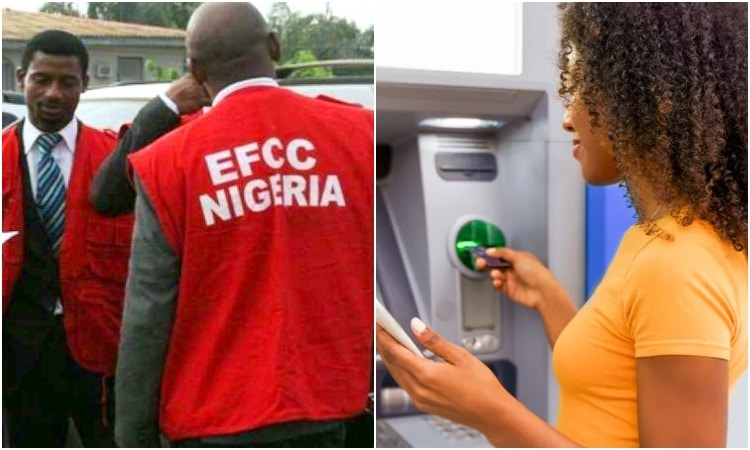Nigeria News
EFCC: Eight Safety Tips On How To Prevent ATM Swap Fraud

The Economic and Financial Crimes Commission (EFCC) has cautioned Nigerians about the threat of ATM swap fraud, as the Commission has received numerous complaints from the public regarding this issue.
The Head of Media and Publicity at EFCC, Dele Oyewale, shared this advice in a statement released on Tuesday in Ibadan.
According to Oyewale, the Commission’s investigations have uncovered a connection between unauthorised withdrawals from customers’ bank accounts and fraudulent activities related to Automated Teller Machine (ATM) day debit card swapping.
He explained that the fraudsters’ method involves retaining a debit card from the same bank and deceptively swapping the card to assist a confused bank customer at any ATM location.
“They swap the card in such a hurry that the customer would not notice and at the same time memorise the pin used in trying the fake cards.
“These cards get stuck in the machine due to a wrong pin, and the fraudster quickly abandons the victim, advising him/her to report to the bank while making away with the victim’s card to make immediate withdrawals from the account.
“This card swapping typically happens at any service delivery point, such as Point of Sale (POS) terminals and ATM points, among others,” Oyewale said.
He noted that this fraudulent practice was on the rise nationwide, urging the banking public to exercise greater caution when using debit cards.
However, the Commission provided a list of helpful tips for the public to prevent additional financial losses, such as keeping cards in view or secure after completing any transaction and verifying that the card legitimately belongs to the cardholder.
In view of the foregoing, the following tips may be useful in avoiding further financial losses by the public:
1. Cards should be kept in sight or a safe place. Whenever you get your card back after making any payment, make sure it is actually your card and not just one that looks similar.
2. Regularly check your bank statements for any unknown transaction.
3. Set transaction alerts to monitor any activity on your accounts or with your bank card.
4. Cover the keypad with your hand or body when entering your PIN at POS terminal/ATM machines.
5. Do not rush to make payments or withdrawals and request assistance only from bank officials.
6. Call your banks to block your ATM cards immediately when your cards are stuck in the ATMs or whenever you observe any irregularity.
7. Ensure you know your bank’s ATM offline blocking code and quickly use it whenever it is misplaced or stolen.
8. Dial the USSD code *966*911# and follow the pop-up instructions to block your ATM card instantly.
Oyewale emphasized that the Commission is committed to steadfastly protecting individual, corporate, and national financial interests as part of its determined effort to eradicate all types of economic and financial crimes in the country.












